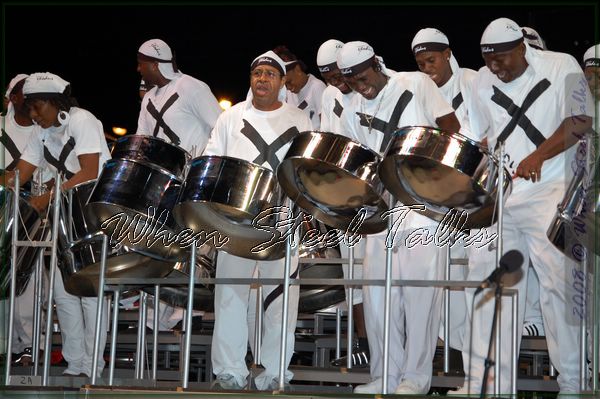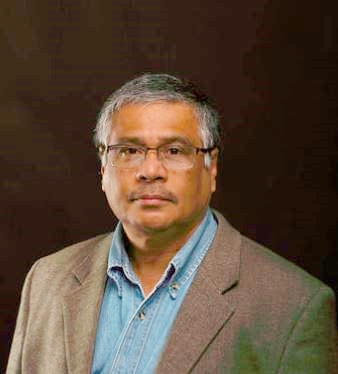Trinidad & Tobago, W.I. - What do Panorama 2019 and the International Labour Organisation’s (ILO) obsession with “the future of work” have in common? Everything. There he goes again, you say: “Pan–the greatest thing we do” and all that stuff.
No matter how hard I try, especially at this time of year, I keep coming back to a conversation—Independence Square circa 1987—with the late, great Keith Smith. I had suggested then that if pan was the greatest thing we do; how come we are staking so much of our future on an industry (energy) that has a finite shelf life?

Trinidad and Tobago National Panorama
Why aren’t we harnessing more out of the vast energy generated by a central element of the creative industry? Measure the man-hours, the creative endeavour, use of the physical elements—instruments, facilities and space, the modes of social organisation—leadership, communal relations, and the economic activity involved including the grossly under-exploited intellectual property value of both instrument and music.
Then, on Monday came the advisory that the ILO’s Bureau for Workers’ Activities had scheduled a “high-level sub-regional conference” in Port-of-Spain which opens tomorrow. Good timing (wink, wink)! Nothing wrong with regional trade union folks working and playing hard, I suppose. Perhaps, at some stage, we would all get it.
The timing is perfect for a discussion on how indigenous value can contribute toward the shaping of economic spaces that are sustainable over the long haul and which make use of the things at which we most excel. Hopefully, the ILO opportunity is not wasted.
This is not as lofty and as esoteric as I am probably making it sound. The ILO, which incidentally observes 100 years of existence this year, has consistently been concerned about changes in the labour market occasioned by the rise of the new national and global economies.
And what are the realities being addressed? For one, technological advances that are generating greater efficiencies and delivering more goods and services are tending to create more jobs in the new sectors than those being lost in the traditional.
We are also growing increasingly concerned about the planet’s environmental sustainability and witnessing innovations that are generating employment in the “greening” of our economies, while carbon and resource-intensive industries scale back in keeping with new sustainable developmental objectives.
The world is also going through a phase in which uneven demographic shifts—a combination of ageing populations in some countries and the dominance of youth in others—that are imposing new pressures on labour markets and social security systems.
Everywhere, there is a compulsion to do things differently. T&T can be said to be, in many respects, at the heart of the unfolding revolution—one that can bear wholesome fruit, but that can also leave us in shambles. Unfortunately, our current trajectory favours the latter scenario over the former. We seem to be captured by a strategy that has us attempting to do the same old things better.
In this, all recognised social partners—the State, business and labour—have fallen short. And this is partly because the key to unlocking our potential resides in otherwise marginalised sectors that do not fit tidily with the prescribed formulation of the needed partnership.
Old prejudices, to come back to the question of pan, keep the instrument and all it represents on the margins of formal recognition as a potentially powerful economic tool. Witness the horror, occasioned by ignorance, at the news that overseas steelpan manufacturers are operating thriving businesses.
I have asked people who know better to please, please offer the information to show that some “copyright” (they mean “patent”) concerns are highly misplaced—though there is a powerful point to not missing out on the opportunities when it comes to innovations.
We may soon also lose a virtual monopoly on the pan-tuning “industry”—we don’t call it that, but it is an industry. And, arranging for pan, though we have the best pan arrangers in the world right here, will slip through our fingers if we continue to focus solely on the Panorama competition to display the best.
I don’t necessarily need to go back 32 years to continue to assert that pan, in all its dimensions, offers to us and “the world of work” a way out of economic peril. We are already 100 years behind, but we can do this.

Wesley Gibbings has been a print and broadcast journalist and media trainer for over 30 years. He is a columnist/feature writer for the T&T Guardian and contributes to several news agencies in the Caribbean and overseas. He has authored numerous papers on the media and journalism and is a campaigner for press freedom in the Caribbean and internationally. He is President of the Association of Caribbean Media Workers (ACM) and sits on the Council of the International Freedom of Expression Exchange (IFEX) and was a member of the inaugural Steering Committee of the Global Forum for Media Development (GFMD). Gibbings is a former journalism lecturer at the Caribbean Institute for Media and Communication, UWI, Jamaica and has co-authored and edited journalism training manuals on the environment and elections.



 When
Steel Talks shirts
When
Steel Talks shirts